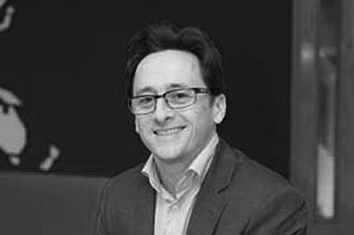We need to have really critical discussions

Tony Roche was interviewed as part of Research Information's report The Scholarly Publishing Research Cycle 2018
What do you see as the biggest challenges in scholarly publishing today?
The obvious answer is the rise of open. Not just open access, but open research more broadly. Many see it as a big threat to the sector, but the way that we’re looking at this at Emerald is that it’s a massive opportunity to contribute in a different way. Open access offers academics choice in routes to publish and the ability to publish more quickly, which is always valuable when you are trying to get research out to your colleagues and community. Open also gives researchers the ability to disseminate their work more far and wide than ever.
There are trust issues with publishing in the scholarly communications sector, many years in the making. As a small, independent publisher, we feel that our approach is very different – relationships and a culture of co-creation with our communities are still at the core of what we do. When we actually talk to policy makers, funders, librarians, and researchers, our approach goes down really well, but there is an initial scepticism or distrust, because you are a publisher.
What can the publishing sector do to help?
The scholarly publishing world up until very recently has been in a kind of steady state, but that is changing. We’re in the stage of a transition to open, and I think the big players are at a disadvantage because with that comes unpredictability. We’re able to work with our customers and quickly change our approach where we need to. Everybody talks about getting closer to your customer, but you have to really embody that in the way you conduct yourself.
More transparency is needed in terms of how we as a sector conduct ourselves, and we need to have really critical discussions with all stakeholders together. The idea of developing solutions with the customer is part of that debate, and different publishers have historically taken a different approach – which is more like prescribing the solution because it suits them.
What can researchers do to help overcome some of the challenges?
Researchers are part of a much bigger ecosystem, with policy makers, funders, libraries, institutions, associations, and publishers. It’s a big complex ecosystem that is evolving and I’d really look for them to be more engaged, particularly in areas like research assessment and incentives. There’s this deeply embedded mindset in the research community that to progress your career path you have to be publishing in highly cited journals, and research assessment is aligned to that. But at the same time the policy makers, the funders and the institutions are now asking researchers to produce work that is much more impactful, and makes a real difference.
It won’t have gone unnoticed that Emerald has been talking about what we call ‘Real Impact’ in the past year. Real Impact has come in the form of initiatives designed to help drive the impact agenda, and to help address the very important question of ‘impact literacy’, and the needs arising from it. It is important to understand how impact operates for researchers and their research. More specifically, it’s important to be able to understand, appraise and make decisions about how to connect research to the outside world, beyond academia. This is impact literacy. Being impact literate means understanding: what changes (impacts) happen, for whom, and how you can demonstrate it; how you can mobilise your research into action; who is needed, with what skills, to make this happen.
We’ve worked closely in collaboration with Julie Bayley (director of research impact development at the University of Lincoln) and another impact champion, Dr David Phipps (York University, Toronto, Canada) to create our Impact Literacy Workbook, which helps researchers to map out some of the key elements for impact and start building a stronger impact plan. Further, we’ve worked with Julie and David to develop the Institutional Healthcheck Workbook. This workbook is designed to help institutions consider how ‘healthy’ they are in terms of supporting and generating impact, and how they can improve it.
What can libraries do to help overcome some of the challenges?
The digital world is transforming many sectors of life, including scholarly communications, and we need to work with libraries to help them to shift their traditional function. Skill sets need to evolve as libraries are challenged with things around open access, complying with mandates, and managing data in different ways. They need to expand their skills to get into things like change management, demonstrating value, and become better at negotiating. This is in addition to all of the traditional areas that they’ve previously been renowned for around information ownership, rights management, curation, preservation and dissemination and so forth.
The library sector still plays a vital part in scholarly communications, and has an important role to play in the future too. What they deliver might be different, it might be things like distance learning, use of AI and machine learning, reading analytics tools and so forth.
Tony Roche is publishing and strategic relations director at Emerald Publishing
Download the free report, The Scholarly Publishing Research Cycle 2018, here.






